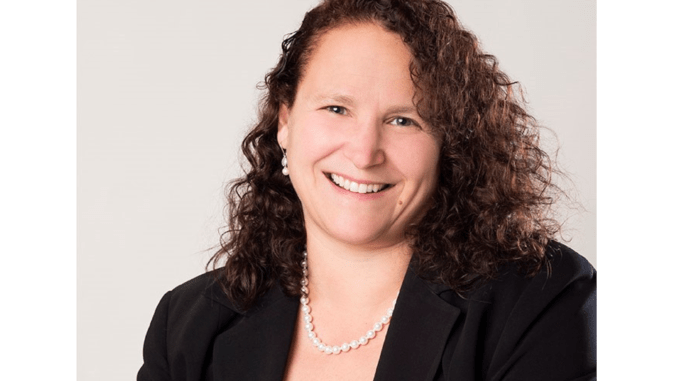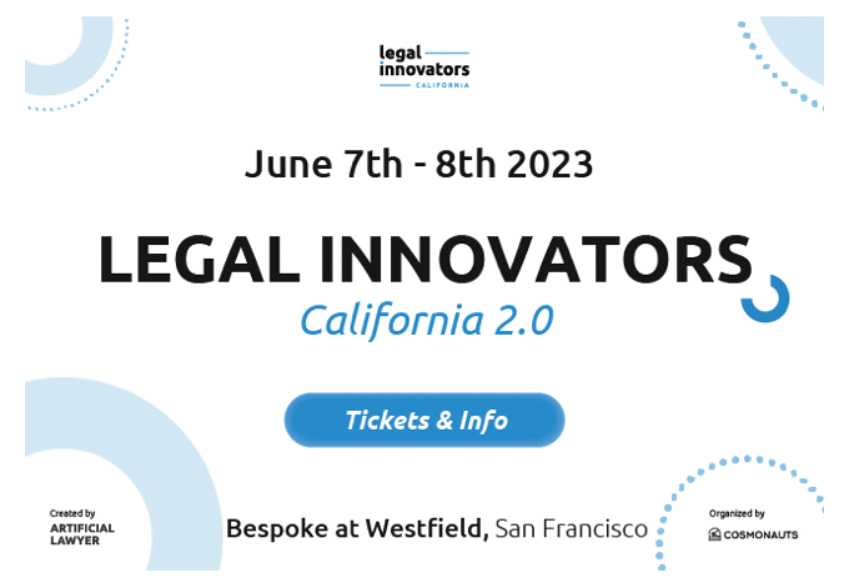
This week’s Legal Innovators California Profile is with Carla Swansburg, CEO of ClearyX, the experimental legal services platform that is a division of leading US law firm Cleary Gottlieb. Carla will be speaking at the landmark legal innovation conference in San Francisco on June 7 and 8.
When did you first hear the term ‘legal innovation’ and what did you think at the time?
I can’t recall when I first heard this term, but I first ‘experienced’ it when I was in-house at a large Canadian bank during the financial crisis in 2008-2009. I had a very thoughtful and visionary general counsel who pushed our team to look at things like legal pricing, process improvement and process management before it was cool. I really enjoyed this kind of work and found myself drawn to looking at legal services in new ways and finding ways to ‘fix’ things that were not working well, were inefficient etc. This period of time also saw the rise of things like the ACC Value Challenge, when procurement discipline crept into legal services. I felt even then that there was so much potential for new disciplines and new ways of working.
What is your role now?
I am now the CEO of ClearyX, a business owned by Cleary Gottlieb but independently run and managed. We are the ‘disrupter’, designed to build new models of legal services from the ground up. We are fully remote and make liberal use of technology wherever it makes our work better, wrapping our team of skilled experts around client problems to build better solutions. We focus on very high-quality work product, a discipline of constant improvement, and a solutions-oriented approach to solving problems that are currently not being solved. In addition to our team members with a legal background we have technologists, project managers, a designer and more.
Why did you move into this field?
I confess there was no grand design on my part to move into this space. A confluence of time and place and opportunity, along with a relentless desire to fix inefficiencies, led me here. I have had a series of great opportunities, along with the required curiosity and tenacity, to stubbornly persist where change is hard. I also had the chance to experiment with early-stage legal technologies and work with start-ups in this space in the early days of the emergence of a lot of legal tech tools. I was working in Toronto at the time, which was the birthplace of a large number of successful technologies (Kira, eBrevia, Blue J, Closing Folders and more).

What is the most rewarding aspect of your job?
I really love building a team, and having the opportunity to redesign solutions from the ground up. I liken it to the ability to build a whole new house with available new materials, and to keep building on that structure, rather than trying to renovate the old one. We have an amazing opportunity to design new ways of solving challenges in legal services with a focus on client experience. I love working with talented people who share the same drive to keep improving and to delight clients. I also have the great fortune to work with forward-thinking leaders at Cleary Gottlieb who give us the necessary space and flexibility to build what we believe are the right things, in the right way. Few large law firms appear willing to invest in the future (and in their own disruption!) in this way. Ok that’s more than one thing, but it’s too hard to choose just one!
If you looked into a crystal ball, how much do you think the everyday practice of law would change in the next five to ten years, especially given changes in AI?
Having graduated from law school 30 years ago (!!!), I see change in this business as very slow. I do think we will continue to see growth in alternative legal services businesses, and more alternative providers moving further up the legal value chain. AI has been creating opportunities for quite some time now and we still don’t see complete adoption of, for example, machine learning tools for diligence in all markets.
The huge amount of talk about the latest large language models (ChatGPT etc.) will certainly encourage more lawyers and law firms to look at the opportunities and that’s a good thing. I think that the biggest implications of those tools will be on legal technologies, and more slowly on traditional legal practice/lawyers, because AI will be better, faster and cheaper at a lot of things (automation, contract review etc.).
What are the biggest challenges legal innovation now faces in the current climate?
I think the challenges remain the same as always – a slow pace of change, legacy systems and models in law, and trust issues. By ‘trust’ issues, I mean that there is little room in a legal practice for experimentation with new tools/ways of working – our profession is one where we expect near-perfection, are reluctant to ‘show our work’ if it is not fully baked. We strive to eliminate all risk. In response I will often point to the fact that airlines (as an example!) have R&D functions, while ensuring a ‘safe space’ and material budgets to experiment and develop their products.
In a law firm partnership it’s just not easy to invest for some future threat or opportunity. I get frustrated when people ‘bash’ lawyers for things like hourly rates – these are smart, successful people who I believe are truly dedicated to providing a high level of service to clients. Change is hard, and takes time, and requires market forces that are slow to build.
And what are the greatest opportunities now for change across the legal sector?
I feel like generational change is going to move the needle faster than in the past. The big opportunities are in solving more client problems, improving the lives of lawyers especially in their junior years (no one goes to law school, for example, to manually review hundreds of leases to find specific data points), and shifting business models to new ways of pricing and new ways of engaging with clients.
There are so many ways to demonstrate the value, ROI and broad benefits to lawyers and law firms who invest in change and build new models of services. This profession has also not been great at focusing on the client experience, and the ‘user perspective’ in legal services – small changes in that regard can reap big rewards if you can find ways to get clients to enjoy working with your solutions. Solve more of your clients problems with a focus on how they work and the opportunities are huge.
And finally, what advice would you give to anyone wanting to get into the field of legal innovation and legal tech?
I would suggest that people interested in this field start following/reading leaders in the space, and immersing themselves in opportunities to attend legal tech and innovation conferences. Build a network of like-minded people. If you are a law student, seek out classes or optional programs to get more familiar with technologies in practice. Find places where you know there is a concern with ‘effort vs value’ in your work or your clients’ work. There are opportunities to invest in change and do hard things by focusing on solutions. You need to be fairly relentless and resilient to make change happen, but informed ideas will eventually resonate with the right people.
Thanks Carla! Looking forward to hearing you speak at Legal Innovators California, June 7 and 8 in San Francisco.
If you would like more information about the two-day event in San Francisco, please see here. Day One will focus on law firms and ALSPs, and Day Two will focus on inhouse and legal ops.
To get your tickets and book your place at the landmark legal innovation conference in San Francisco this June please see here.
See you all there!
